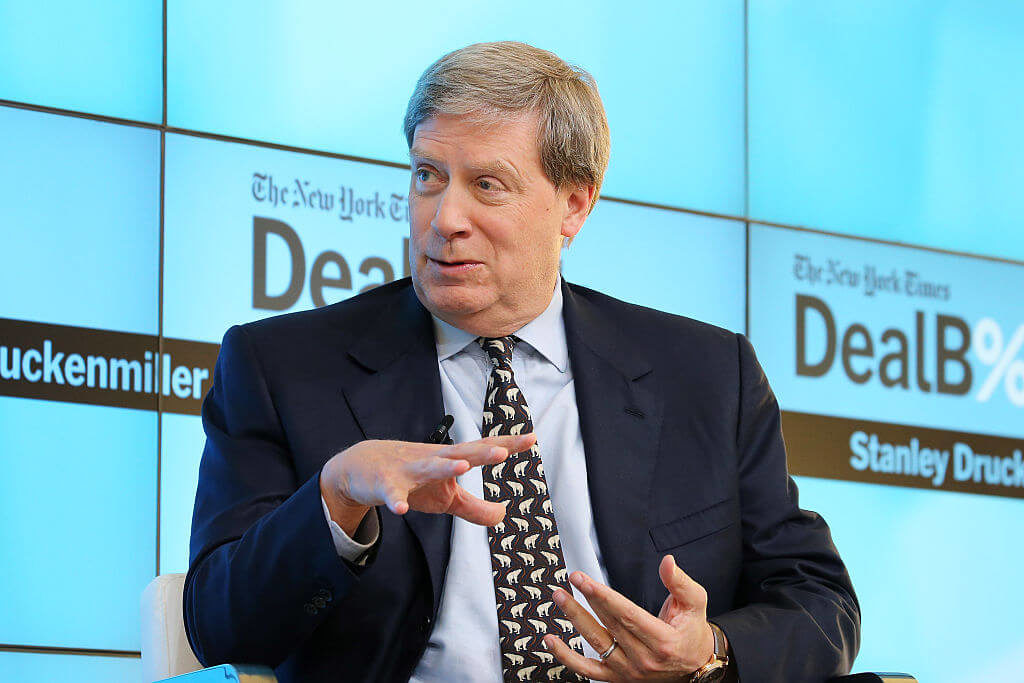With coronavirus fears running rampant and causing massive sell-offs this morning on all three major U.S. indexes, Duquesne Capital founder Stanley Druckenmiller recently pinpointed three things that could derail the record bull market run.
Druckenmiller: 3 Things That Could Cause a Bear Market
Druckenmiller listed political upheaval as his first thing that could cause a bear market, which makes sense considering America is holding a presidential election this year.
Donald Trump is the incumbent with self-proclaimed Democratic Socialist Sen. Bernie Sanders leading the latest Democratic primary field, according to Real Clear Politics. Sanders is currently polling at about 29.3% followed by former Vice President Joe Biden (17.2%), billionaire Michael Bloomberg (15.3%), Sen. Elizabeth Warren (13.2%) and former South Bend, Indiana, Mayor Pete Buttigieg rounding out the Top 5.
“If there’s a political event, (a) change of leadership in the White House that goes to some of the anti-capitalists,” he said. “I would think that would definitely trigger a bear market, whether it would permanently end the bull market I don’t know, but that would trigger it.”
The second item on Druckenmiller’s list of things that could derail the bull market is inflation. The U.S. Federal Reserve sets its target inflation rate at 2% per year. If inflation, which has been stubbornly low, according to Fed officials.
“The other thing that would obviously trigger it is if by the end of this year we started to get enough inflation that the Fed started tightening,” Druckenmiller said.
Finally, Druckenmiller said a “credit event” is the third thing that could push this record-long bull market into bear market territory. The credit market refers to the market companies and governments issue debt like bonds to investors.
The credit market is vastly larger than the equity market in terms of dollar value, so the credit market is an indicator of the health of stock markets and the economy as a whole.
“And of course the other thing is if we had a credit event,” Druckenmiller said. “And if you look at the credit markets, it is very obvious that you’ve got really a lot of bad apples out there that are not being exposed because the interest costs are so low.
